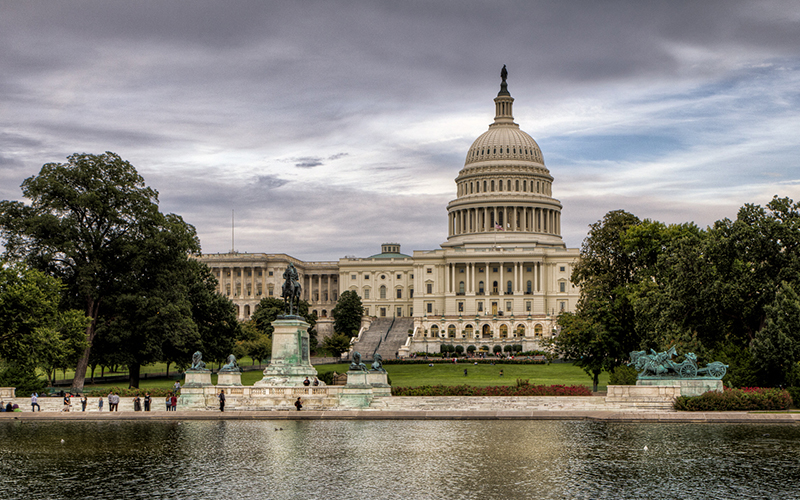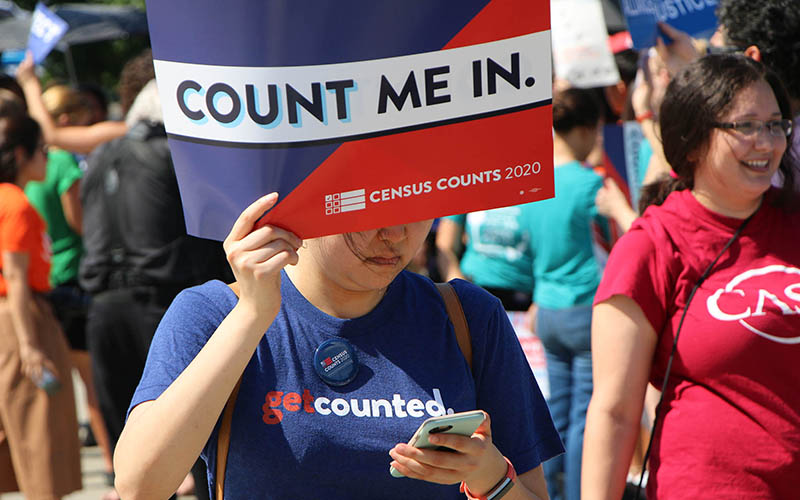
Arizona continues to be one of the fastest-growing states in the nation, which is why most believe it will gain a seat in the House – its 10th – after the 2020 Census. (Photo by Justin Brown/Creative Commons)
WASHINGTON – The only things certain in life are death, taxes – and, for the last six decades, that Arizona would gain seats in Congress.
That streak is almost certain to continue in 2020, when the census is expected to show the state has added enough new residents over the last 10 years to add another seat in the House, its 10th.
“What we’ve seen is Arizona basically gaining a potential seat for much of this decade,” said Kim Brace, president of Election Data Services. “It’s been on the radar for a while.”
Besides giving the state that much more clout in Congress and one more vote for president in the Electoral College, the addition of a House seat is also sure to draw attention from the national political parties as they battle to win the seat.
“New congressional districts almost always generate a group of all-stars to compete for the right to win that seat, and so there are mini political Super Bowls,” said Arizona political analyst Jason Rose.
A recent Census Bureau survey showed that Arizona was one of the fastest-growing states in the nation in 2018. The bureau said the state had added almost 780,000 people from 2010, the last full census count, through the 2018 population estimates.
The growth has been so big that experts like Brace say the population should be large enough in 2020 to capture a new congressional seat with 235,000 people to spare.
“It just adds to Arizona’s clout both from a political perspective but then also in terms of funding and policy considerations” that will affect the state, said Bill Scheel, founding partner of the Phoenix political consulting firm Javelina.
Each state is guaranteed at least one seat in the 435-member House. After that, the remaining 385 seats are allocated based on the population of the states.
“Each time a seat is assigned, the population gets drawn down from that state and it rotates all the way through until you get to seat 435,” said Brace, who said Arizona is expected to capture the 426th seat in the game of legislative round-robin.
Arizona is not the only state likely to gain a seat. Phoenix-based Research Advisory Services predicts that Florida, Texas, Colorado, Montana, North Carolina and Oregon will all win one or more seats as a result of the 2020 census.
Those seats have to come from somewhere, and the firm predicts that New York, Alabama, California, Illinois, Michigan, Ohio, Pennsylvania, Rhode Island and West Virginia will lose House members.
The census is supposed to count each person in the U.S. on April 1, and deliver a final head count to the president by the end of the year. A month later, states officially hear how many of the 435 House seats they will get, and each state gets a final count of its population by March so it can begin redrawing congressional district boundaries.
In Arizona, that job is handed by the Arizona Independent Redistricting Commission, made up of two Democrats, two Republicans and an independent chair, who are charged with drawing congressional and legislative district boundaries in time for the 2022 elections.
Rose and others expect that Arizona’s 10th District will end up in the metro Phoenix area, which has been one of the fastest-growing areas in the nation for years, and is not likely to tilt heavily Democratic or Republican.
With the current nine members of Arizona’s congressional delegation split between five Democrats and four Republicans, the race for a competitive 10th District could be intense, experts say.
There are possible wrinkles. There are always challenges with the decennial census, but this is the first time that the bureau will allow people to respond from any device online, as well as by mail and by phone.
Another lingering fear is that of an undercount – either because people are not informed or because immigrants in the U.S. will be afraid to fill out a census form, even though Census workers make a lifetime pledge of secrecy about individuals’ census data.
That fear was heightened last year, when the Trump administration announced plans to put a citizenship question back on the census, 60 years after it was last asked.
Critics said the move was designed to suppress responses from minority and immigrant communities and went to court to stop it. The case eventually reached the U.S. Supreme Court, which ruled in June that the bureau had not taken the proper steps to include the question in 2020.
Despite that, some worry that the damage has already been done.
“The immediate fear has dissipated but there still is the potential of the scare that happened last year to cause people to not answer the census,” Brace said. “So, it’s still kind of an iffy phase … you feel happily comfortable with it, but don’t get totally comfortable with it.”

